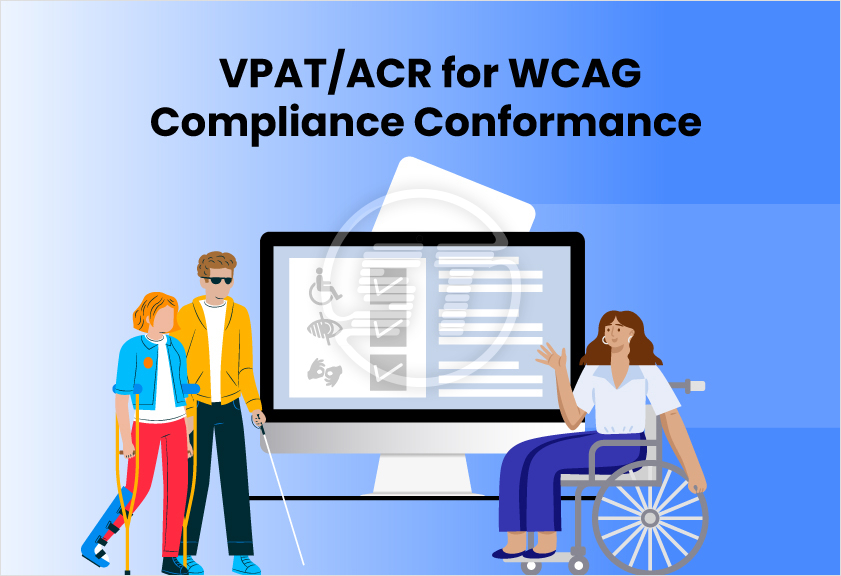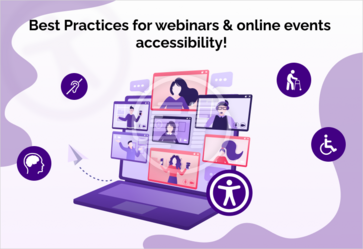WCAG is a universally accepted guideline to bring accessibility to the web world. Though there are other international standards exist as well and they are mostly influenced by WCAG's latest versions.
Digital products (websites and applications) that include WCAG standards are required to display their commitment to accessibility. And to show a website or application’s accessibility status, organizations fill out their VPAT (Volunteer Product Accessibility Template) and publish/share it.
A VPAT is a physical document with some defined guidelines. It is filled out by web accessibility experts. It includes every detail about digital product and the way accessibility has been infused in it. Please note that lately, VPAT updated to its latest version VPAT 2.5; so now organizations are required to update their VPATs to the latest version for 2024.
Are VPAT & ACR alike?
Far too often, VPAT and ACR are used interchangeably; however, they are not similar. Organizations use VPAT to create ACR (Accessibility Conformance Report). So, in simple words, a defined template (VPAT) is there that shows the organization’s accessibility level in a report (ACR).
VPAT has its requirements to be filled out in a certain way, which is defined by the Information Technology Industry Council. Most importantly, it is crucial to ensure using the latest version and suitable edition of VPAT to achieve WCAG compliance.
Different international web accessibility laws have distinct VPAT editions such as VPAT WCAG edition, VPAT EU edition, VPAT 508, VPAT INP , etc. The wrong VPAT will not help in publishing the right ACR.
So, VPAT and ACR both have a purpose to assess the level of accessibility of a digital product or service and provide information about how well the product or service is conforming to laws. However, VPAT is a standard template and ACR is a tailored report, which varies as per the organization’s conformance type.
How does VPAT contribute to WCAG compliance achievement?
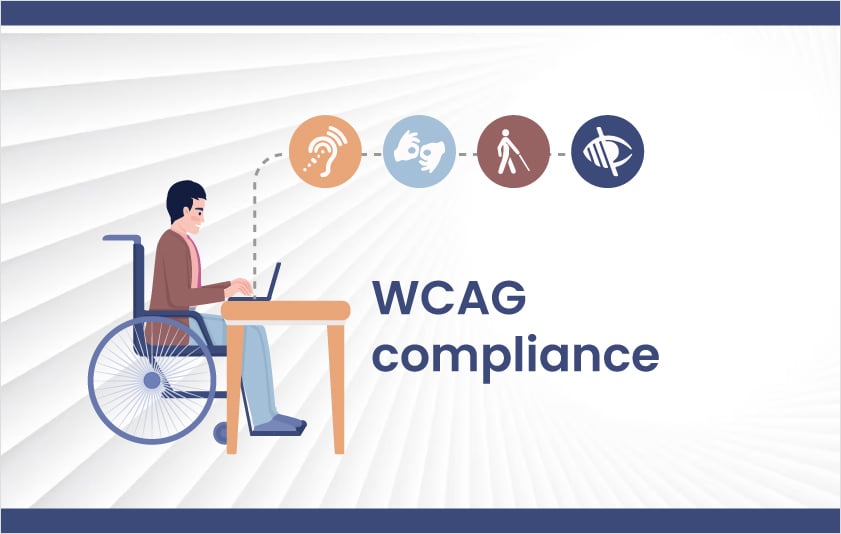
For organizations that ought to comply with Section 508 of the Rehabilitation Act, VPAT is one of the mandates by law for them. However, other organizations are also encouraged to follow this practice of including accessibility and displaying the conformance report.
When an organization begins with VPAT completion work, they need to give information about website/application accessibility level, design/development/testing methods, remediation techniques, what updates are made, etc. Thus, organizations make sure that their digital products conform to related accessibility standards. However, it does not matter if the website or application is fully compliant or not. There are different options to mark for website compliance level such as Supports, Partially Supports, does not support, and not applicable.
The third-party accessibility consultant (who is supposed to fill the VPAT) will provide an explanation of exceptions that are appropriate for the website.
So, a VPAT is used to evaluate digital accessibility, display compliance, and promote inclusivity, which eventually is a boon for WCAG compliance success.
YOU MAY ALSO LIKE: Importance of ADA and WCAG Testing
Is VPAT/ACR accessibility report mandatory?
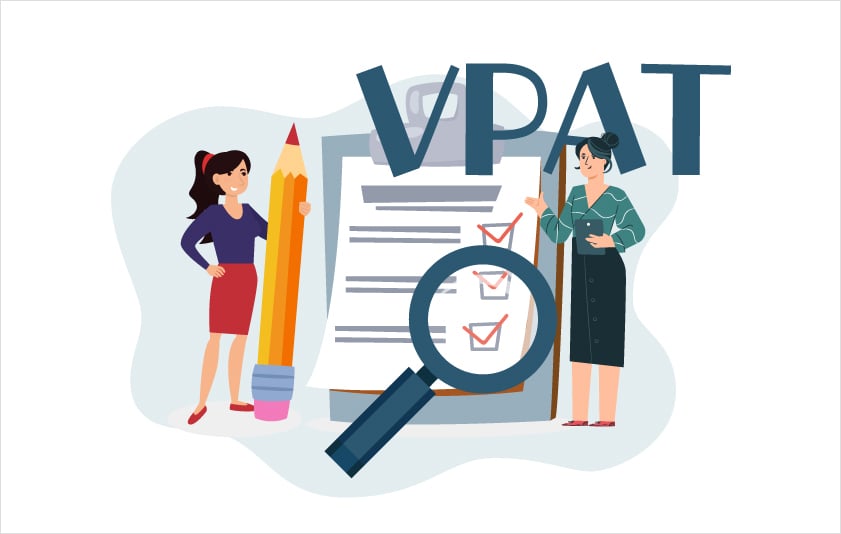
VPAT (Voluntary Product Accessibility Template) is not mandatory in a legal sense, as its name implies voluntariness. However, it serves as a crucial for organizations to assess the accessibility of their digital products and demonstrate compliance with accessibility standards such as WCAG (Web Content Accessibility Guidelines).
A VPAT helps in identifying missing accessibility facets and gives an opportunity to include elements or remove barriers that are causing inaccessibility. They can help mitigate the risk of legal challenges related to accessibility. Therefore, while not mandatory, VPATs are highly recommended for organizations aiming to prioritize inclusivity and accessibility in their digital offerings.
VPAT is crucial for procurement personnel to understand the accessibility level of an information technology product or service to buy it.
While not legally required, VPATs are often requested by:
- Federal government agency
- Federally funded
- A vendor of the federal government, its agency, or a federally funded organization
- Educational institution
- Non-profit and Advocacy organization
YOU MAY ALSO LIKE: Cost to Remediate A Website
How to create a VPAT report?
VPAT report creation requires a few steps to assess the accessibility of a digital product or service.
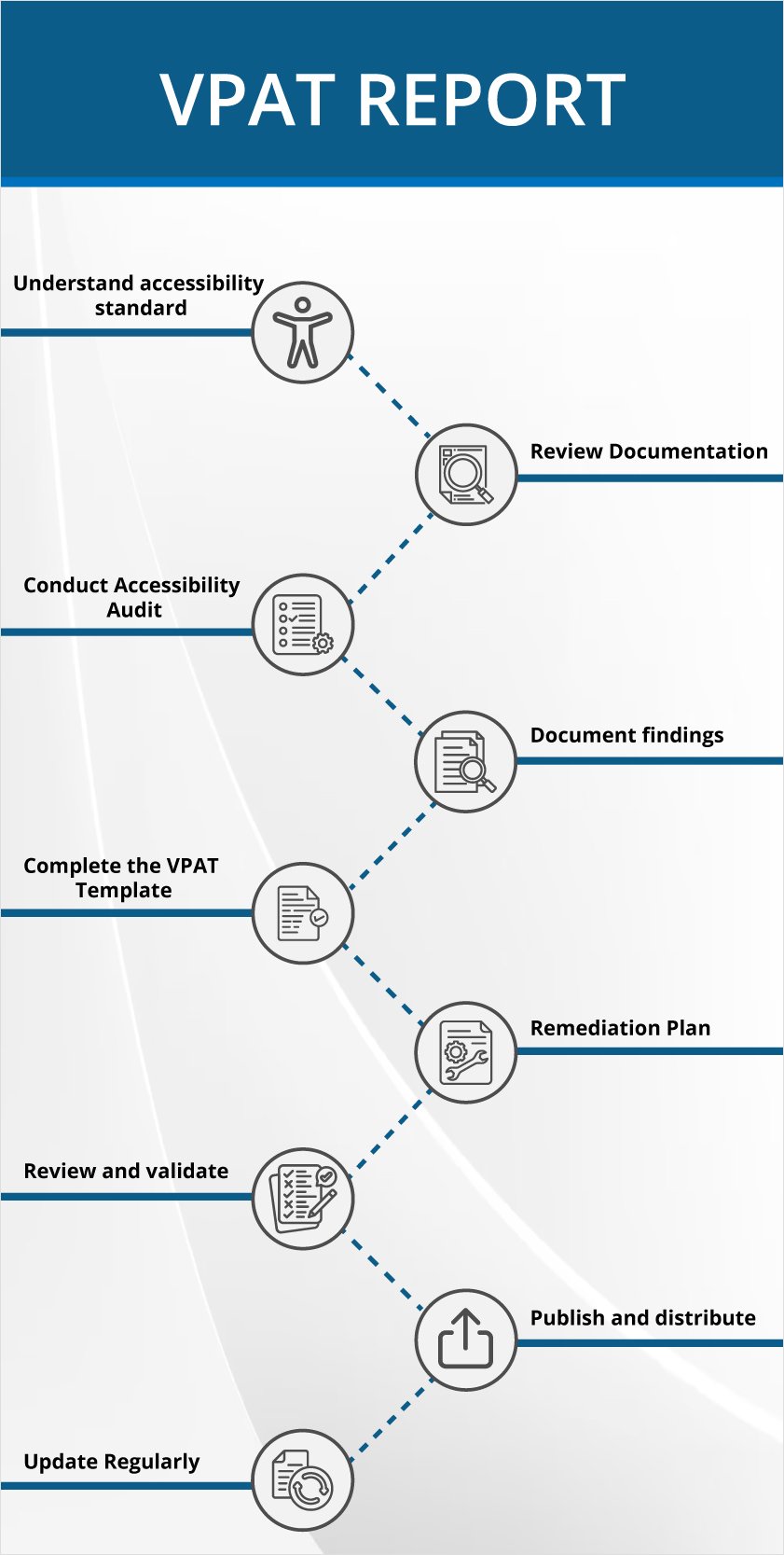
- Understand the applicable accessibility standards such as WCAG, Section 508, or other relevant guidelines.
- Utilize the free website accessibility checker to initiate a quick evaluation of your digital product’s accessibility status. This process provide automated assessments and recommendation for manual WCAG accessibility testing, for ensuring a thorough analysis to identify and address potential accessibility barriers effectively.
- Each success criterion should be assessed to determine if the product meets them fully, partially, or not at all. It is a crucial point to indicate the degree of compliance in the VPAT report.
- Start creating a structured report based on the format and sections of the VPAT.
- Describe the product or service in detail including its purpose, features, and functionalities. Also, highlight if any accessibility enhancement has been done.
- Go through each section of the VPAT and provide correct information for the corresponding accessibility criteria.
- Provide supporting details for every evaluation to make it easy to understand based on conformance assessment.
- A summary statement is needed along with relevant contact information for further queries and support.
- Review the report to ensure its accuracy, clarity, and completeness.
- Publish and share the complete VPAT report with stakeholders, potential customers, and government agencies as required.
In summary, VPAT and ACR play crucial roles in driving WCAG compliance success by providing a structured framework for assessment, documenting accessibility features and compliance levels, promoting transparency and accountability, ensuring legal compliance, guiding improvement efforts, providing market advantages, and supporting continuous improvement initiatives.
Unlock the power of accessibility and ensure your digital information reach everyone. Our VPAT report services provide comprehensive accessibility compliance assessments, and guide towards WCAG compliance success. By partnering with Skynet Technologies, demonstrate your commitment to inclusivity while gaining a competitive edge in today's diverse market. Let us work together to make your website or web app accessible to all, empowering every user to engage seamlessly. Reach out us hello@skynettechnologies.com
